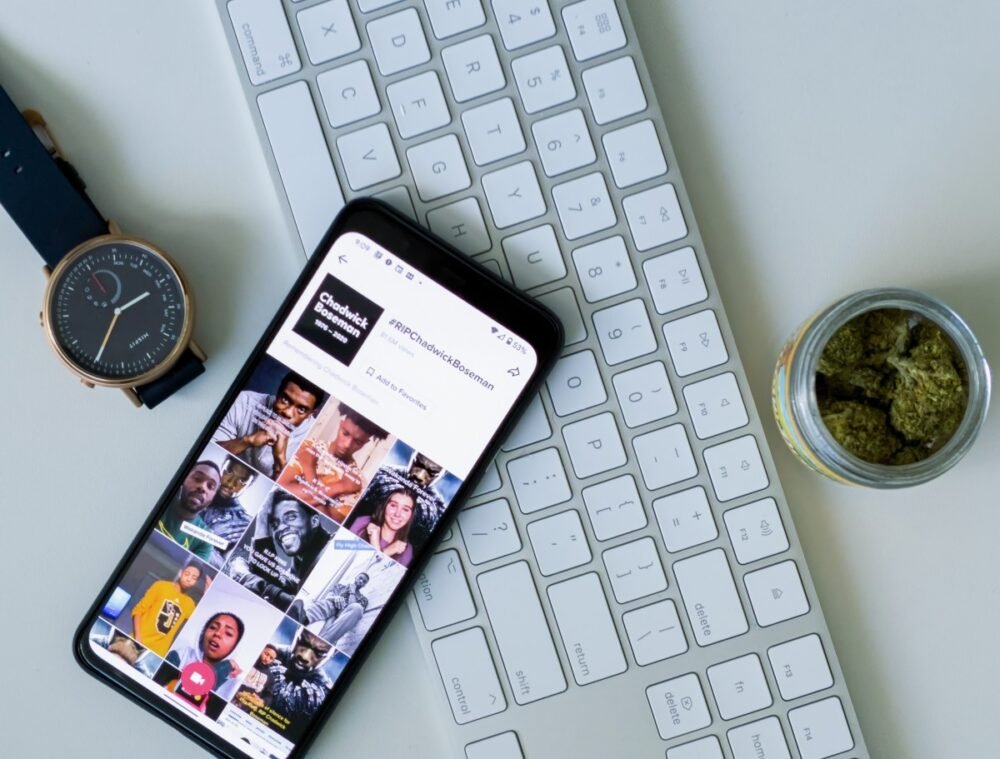How TikTok has Influenced the Music Industry

TikTok makes it simple for anybody to create and share viral videos. The biggest major disruption to the music industry in years looks to be TikTok, causing many existing music firms to sit up and take notice in order to avoid a flood of fan-supported musicians from joining the sector. Its impact on popular music is undeniable, and TikTok has a similar effect on the music industry as streaming services like Spotify and Apple Music did in the 2010s.
- The Dangers of TikTok for Children
- Just how much influence do TikTok influencers have?
- Denise Chaila: The future of Irish Rap
According to music industry insiders, one of the most disruptive aspects of TikTok is that it’s difficult to anticipate which songs will become popular on the platform. To a great extent, streaming platforms and commercial radio stations continue to promote the same stable of pop behemoths — your Swifts, Grandes, and Biebers – but TikTok is a different story. Huge mainstream songs regularly fail to register on the app, while older music, unsigned artists’ songs, and obscure remixes rule supreme.
TikTok, which has only been around for five years, already has over one billion active users worldwide. Its 1 billion monthly users can download music tracks and graphic effects for free. To complement video content, algorithm-based incentives to create duets and an addictive watching style are utilised. This combination of features has resulted in establishing a popularity machine for musicians of all ages, both established and aspiring, to emerge into the music industry on their own merits.
The strangest influence Tiktok has had, has to be Fleetwood Mac’s 1977 breakthrough single “Dreams”, becoming the sound of a massive TikTok fad launched by DoggFace208. In his video, he skateboarded while sipping cranberry juice and singing along to the famous song. Others quickly followed suit, recreating the video with the music. It was a simple trend, but it had a massive influence. In September alone, the song was streamed 8.47 million times across all music platforms. The song “Dreams”, which had previously been at the top of the charts, has recaptured its number one spot 44 years later.
TikTok is a different species entirely from any other social platform, where ancient Fleetwood Mac songs and clips detecting samples in decades-old rap songs are just as likely to become viral as the music heard on Top 40 radio. With a TikTok challenge, a number of the most popular songs of the new decade surfaced. Due to the variability and openness of taste in our era of competing streaming services, when you’re always only a click away from hours and hours of outstanding digital media, what spreads through the app is a miscellaneous collection of its users’ likes and opinions.
Even still, there are recurring elements in this seemingly random algorithm, indicating that there is a method to TikTok’s madness. TikTok makes it easy for users to find their videos by indexing hashtags and song choices, as well as prominently displaying usernames to ensure appropriate attribution when their material is shared elsewhere on the internet. It is in the best interests of competent artists to use these tools to enhance their exposure and visibility. Then, it comes to reason that TikTok challenges are prevalent not only because of the app’s allure or conformity but also because it encourages this behaviour.
The most notable example of this is Lil Nas X’s 2019 hit “Old Town Road”, a beautifully vacuous song full of cowboy-style signifiers whose earliest stirrings came from a TikTok gag in which the song’s rewarding beat drop causes the user to appear in cowboy clothing, embracing kitsch and caricature in ways the song only lightly suggests. In a couple of months, what began as a joke about blue-collar fashion had captured the attention of youth all around the world. The explosive popularity of “Old Town Road” reveals a little about the type of music that works best on TikTok. Often, all it takes is a peppy beat, profoundly descriptive or otherwise instructional lyrics, and a surge of passion.
Dance-pop or loud hip-hop tunes are rewarded in choreography competitions. A single rousing lyric can elevate a comedic video to new heights. A slow, sorrowful song’s total drama is a beautiful feast for aspiring performers. As TikTok establishes itself as a king-making promotional tool and a stepping stone to music superstardom, musical pieces that lend themselves best to be utilised are rising to the top of the charts.
TikTok is democratising music in the same way that personal blogs and YouTube changed the field of cultural critique in the 2000s, wresting power from the suits in charge and upending the industry in a way it arguably deserves. It used to be that breaking a new artist was a mercenary campaign of co-signs and guest appearances.
Today, a single astute fan may get that ball rolling by simply sharing it. This new manner of listening to music has many of the same qualities as the old. There’s money in dumbing down art, as there always has been, and conformity continues to rule culture as much as genuine creativity. Has the internet changed us or has it only accelerated us on paths we’ve been on all along?